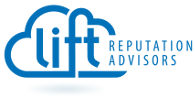
For the last several years I have not made New Year’s Resolutions. Not because I rarely keep them or because I don’t like change or there are simply too many things I’d like to improve about myself, so why bother. Or because I’m against the idea of “taking stock” and putting my ego (or is it my id or superego?) under the microscope to evaluate what’s working for me and what isn’t.
Mainly, it’s because the idea of taking just one day a year to reflect, sharpen my focus and move on seems, well, out of touch. And since most of us vow to lose weight, quit smoking, or save more money these resolutions seem to be just a bit self-serving, don’t you think?
The tradition of looking back at our mistakes over the past year and resolving to do better is thoroughly modern, but its roots date back to the Babylonians. In Ancient times, says the History Channel, the New Year was celebrated in March when crops were planted and Babylonians promised to pay their debts and return anything they had borrowed. Then around circa 46 B.C., the Romans established Jan. 1 as the New Year offering sacrifices and making promises for good behavior in the coming year (a vow they apparently didn’t keep, either, based on the size of the Roman Empire). Early Christians got in on the act and these services were formalized by Methodists and Protestants as Watch Night Sermons on New Year’s Eve spent with scripture, prayer, singing and spiritual rejuvenation. Hallelujah!
Despite 4,000 years of practice, less than 10 percent of us keep our resolutions although nearly half of us make them year after year. So why should this year be any different?
Maybe thinking outside ourselves and our perpetual bad habits and focusing on what is really most important to our happiness is a good place to start. In an era where many of us measure our friendships and engagement by the number of Facebook friends we have, how many retweets we get or views generated on YouTube, it’s easy to lose sight of what’s real. Melody Wilding, who teaches Human Behavior at The City University of New York, suggests turning resolutions into questions to set more meaningful and realistic goals. This puts us into a solution-oriented, problem-solving mindset, something those of us who are ruminators can relate to, but with a positive spin.
“A question is a puzzle. It prompts a psychological response. Once question has been raised, the mind almost can’t help trying to solve or answer it.” – Melody Wilding
The idea is to break down a problem into baby steps, identifying small but significant changes that will have an impact and get you on the right path. Or, as patient Bob Wiley told therapist Dr. Leo Marvin in the movie, What About Bob, “I’m doing the work, I’m baby-stepping, I’m not a slacker! Just look, I’m in really bad shape!”
Perhaps an even better tradition is this: make a list of your accomplishments (big or small) in 2016, the things you did that you are most proud of, that you derived the most pleasure from or that helped someone else in a difficult situation. A sampling of my list includes:
- I joined the board of Habitat for Humanity-Ozaukee, expanding my involvement in non-profit work, something I have vowed to do for years but failed to follow through on.
- I spent more time with family, supporting my parents after they both had serious illnesses, helping my daughter pass her driver’s test, and taking more time to say “I love you,” “I’m proud of you,” and “thanks for being there.”
- I reconnected with old friends and colleagues I had lost touch with over the years, renewing these relationships and discovering parts of myself I thought I had lost in the process
- I stopped defining myself (and my personal success) entirely by my work, my job title, my salary and the other traps we often fall into in the so-called business world.
- I started my own business, Lift Reputation Advisors, hanging out the entrepreneurial shingle, developing a website, completing a business plan, and securing financing to help get me started.
If you are struggling with this approach, it may be because the actors that guide your mental processes and form your personality are doing battle, as referenced here in this blog post from Psychology for Dummies. Explaining Sigmund Freud’s theory on personality, the authors describe the id as the seat of our impulses, the ego as the negotiator with the id to please the superego, and the superego as the force that keeps us on the straight and narrow. “Each of these characters has its own idea of what the outcome of the story should be. Their struggles are fueled by powerful motives, and each one is out for itself.”
It’s the id that derails our resolutions and leads us to impulsively snarf that box of donut holes. The ego works to satisfy our desires, within realistic parameters, negotiating with the id’s demands versus the boundaries of the world around us. The superego is another name for our conscience, judging our actions and how we perform. Our superego can be relentless, especially if we are hyper-critical of ourselves, or a silent player if we lack the capacity to feel guilt or if we always find ways to justify unethical or immoral behavior.
When you think about it, the best way for your superego to judge your performance or improvement is through the strength of your relationships. This is a quality vs. quantity equation, measured by the authenticity of these relationships and the mutual value each party gets from the other. So this year, when you put your ego on the line and make your pact to improve your situation in 2017, set just three goals for yourself and ask yourself the essential questions to help you achieve them, such as:
- Strengthen your family relationships: What activity might my daughter and I do regularly together to improve our relationship?
- Maximize your professional relationships: How can I help Joe improve his LinkedIn profile to attract more prospects?
- Fortify your personal friendships: How can I help my friend Barb through her recent divorce?
We all have the capacity to give more of ourselves to others and, in the process, the satisfaction and pleasure we’ll derive from these experiences will sustain us in the New Year. Best to you and yours in the coming year and don’t forget to make those resolutions!
The views expressed here are mine and mine alone. They do not necessarily reflect the opinions of my former employers, current friends and colleagues, affiliated organizations nor anyone I may have met in the past or may meet in the future.
